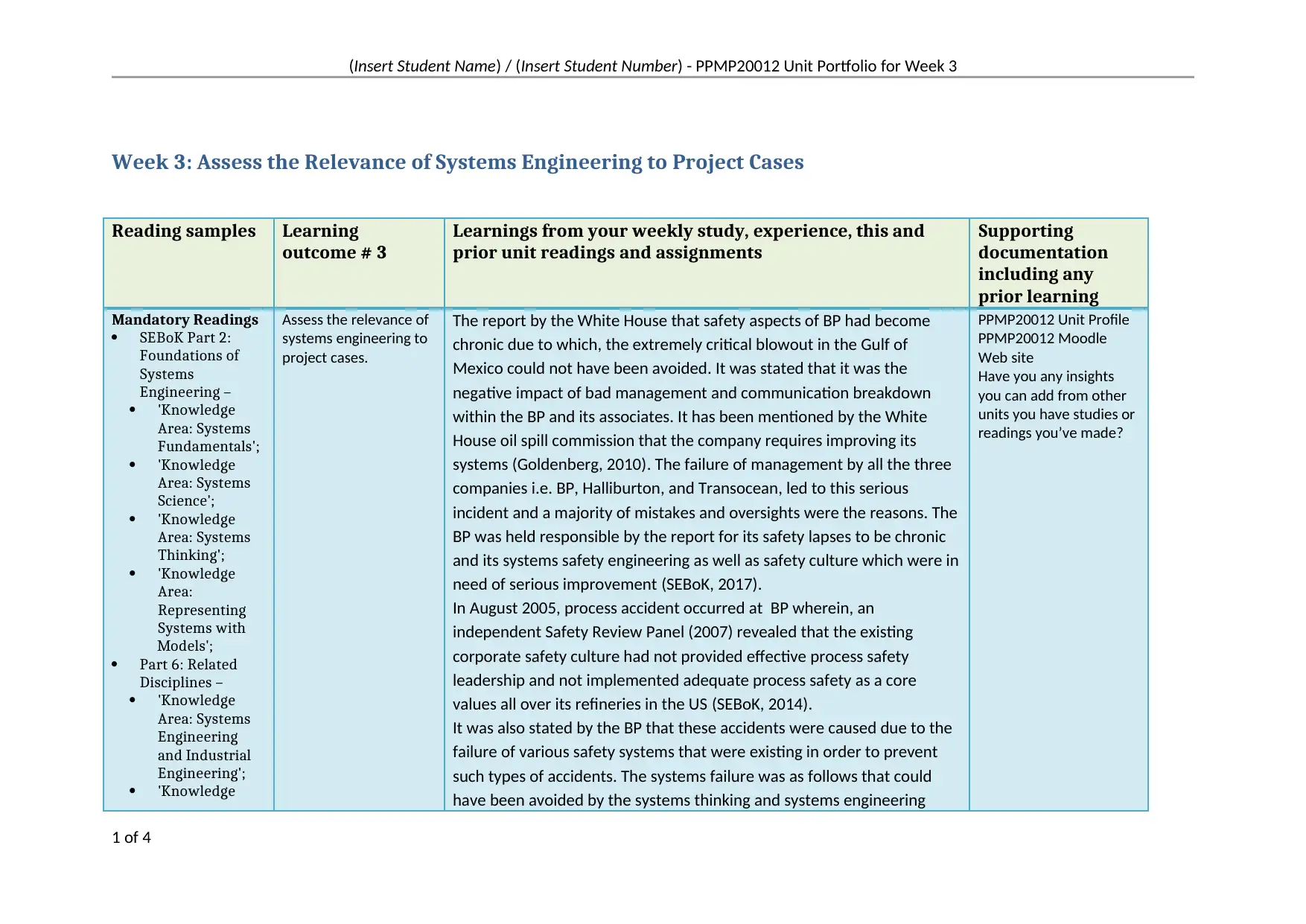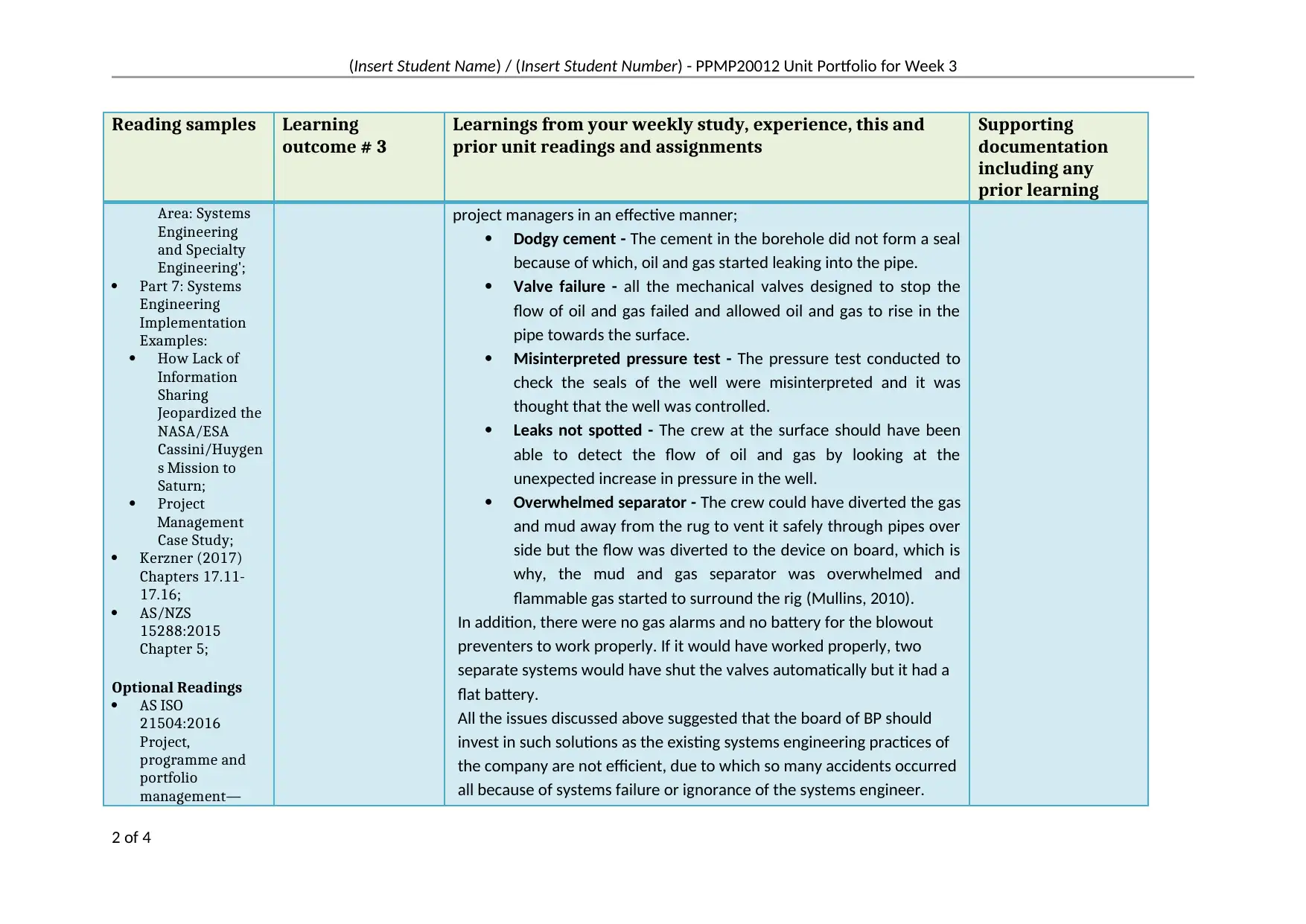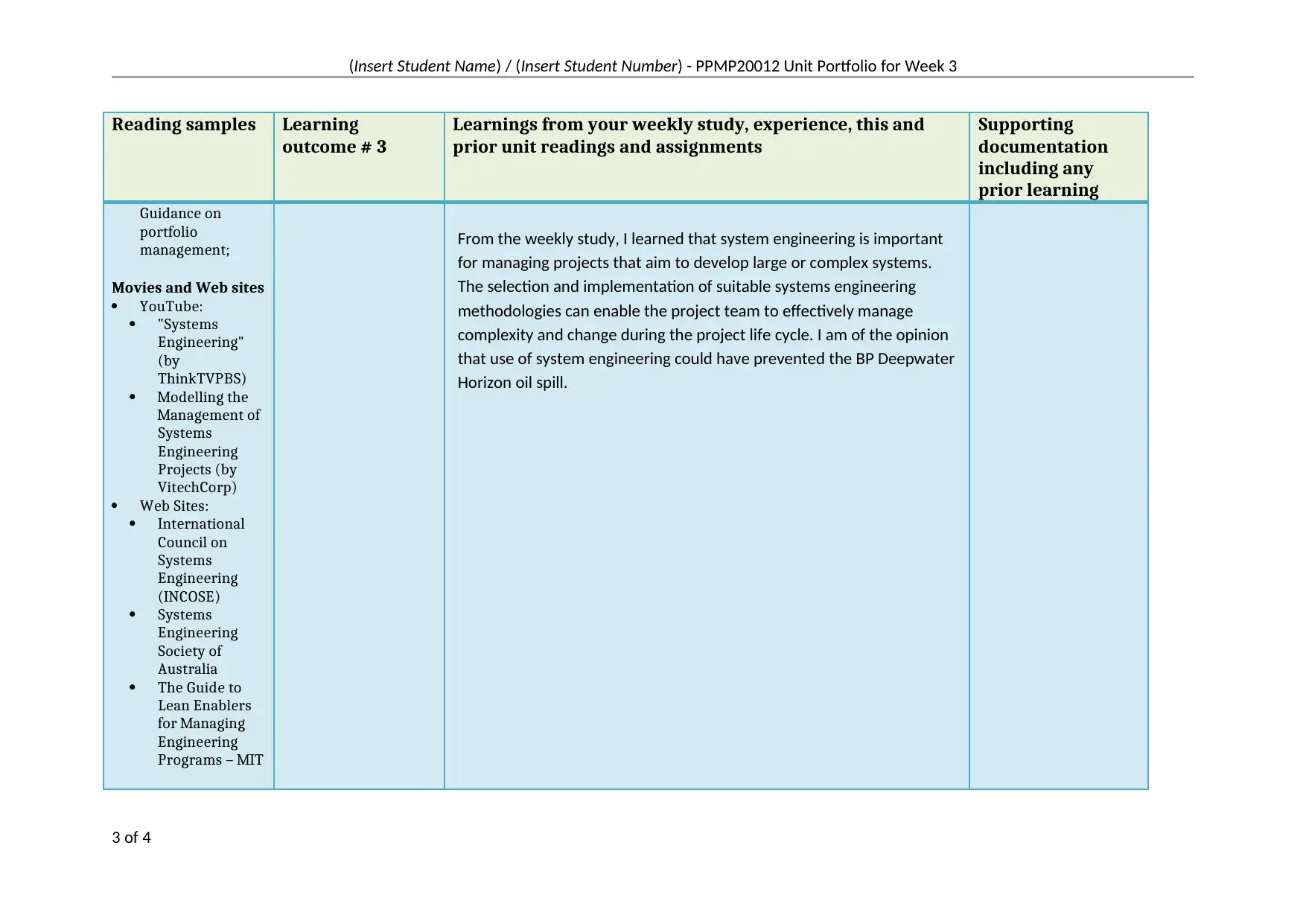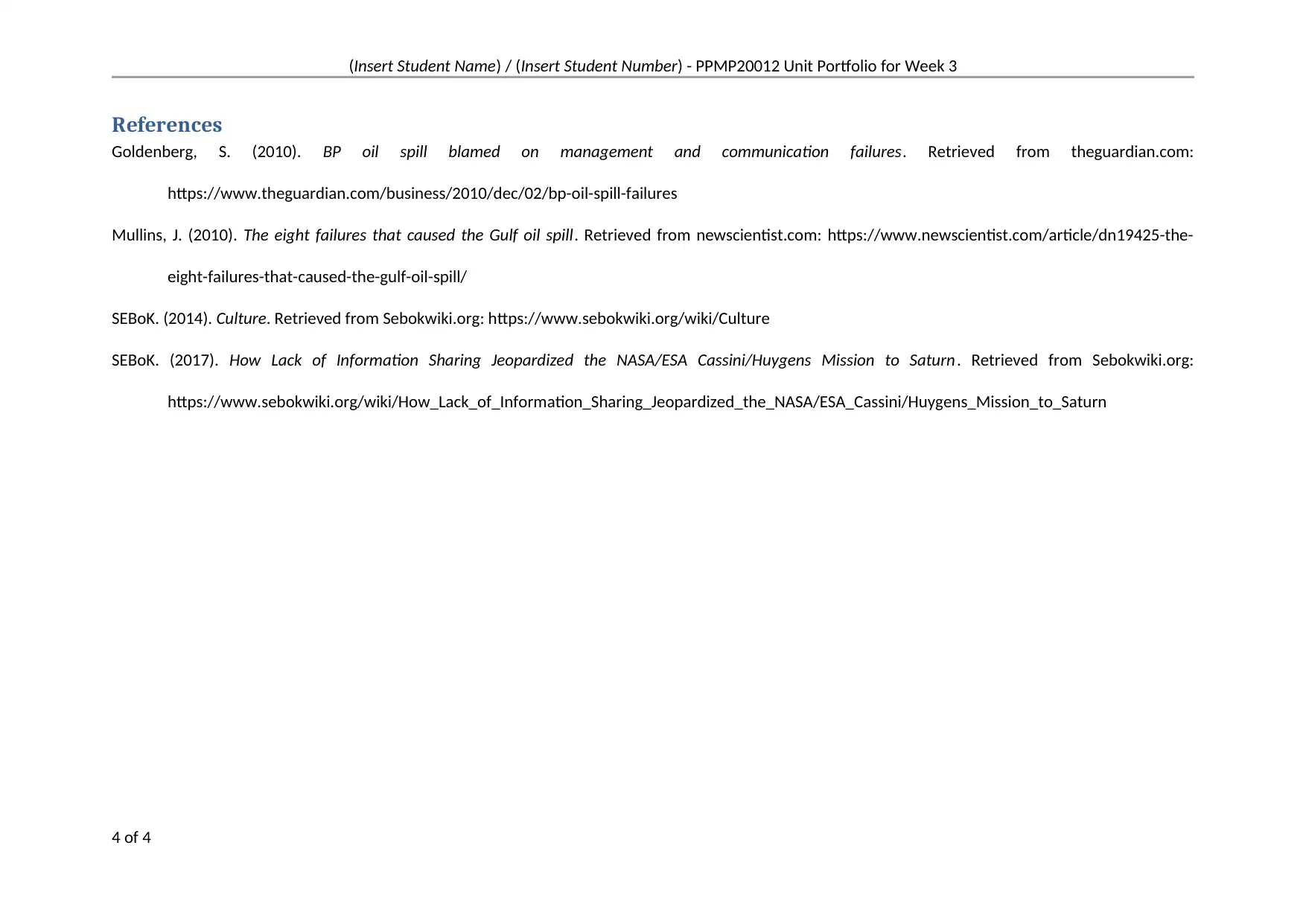Assessing the Relevance of Systems Engineering to Project Cases: BP Oil Spill Case Study
VerifiedAdded on 2023/06/08
|4
|1106
|162
AI Summary
This report discusses the relevance of systems engineering to project cases through the BP oil spill case study. It highlights the failures that led to the incident and how systems engineering could have prevented it. The report also mentions the mandatory and optional readings related to systems engineering and project management.
Contribute Materials
Your contribution can guide someone’s learning journey. Share your
documents today.
1 out of 4







![[object Object]](/_next/static/media/star-bottom.7253800d.svg)